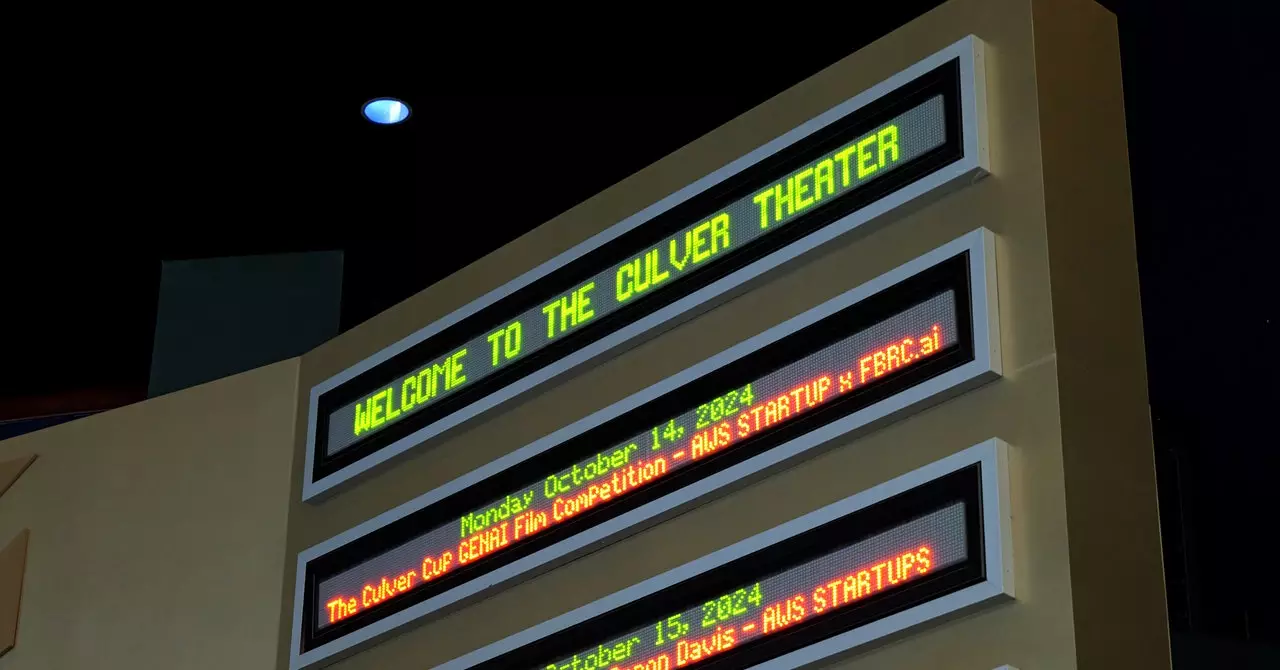In the rapidly evolving landscape of filmmaking, there’s a growing dialogue surrounding the integration of artificial intelligence (AI), particularly relating to storytelling. A prominent voice in this discourse, known as Meta Puppet, emphasizes the necessity of mastering the fundamentals of storytelling, regardless of technological advancements. The notion that storytelling remains unchanged amidst burgeoning technology is both reassuring and alarming; it underscores a truth that resonates across generations of creators: crafting a compelling narrative transcends the tools employed.
Although he employs cutting-edge AI tools like ElevenLabs in his short film “Mnemonade,” which delves into themes of memory and loss, Meta Puppet insists that emotional depth is essential for success. By manipulating AI to capture the nuances of various voices, he challenges the notion that emotion can be artificially generated. His perspective raises crucial questions: Can technology truly replicate the emotional intricacies of human storytelling? Or, will AI serve merely as a tool in the grand tapestry of narrative art?
The apprehension from Hollywood towards AI isn’t without merit. Filmmaker Maddie Hong articulates this hesitance, acknowledging the potential for significant legal ramifications along with the threat of financial pitfalls due to copyright issues inherent in generative AI technologies. The industry’s high standard for image and narrative coherence, especially given the diverse platforms on which content is distributed, creates an environment where experimental approaches may struggle for acceptance.
This resistance, however, may also stem from a fundamental unwillingness to embrace change. As Amit Jain, co-founder of Luma, suggests, the current Hollywood model leans heavily on recycling existing franchises, a risk-averse strategy that potentially stifles innovative storytelling. The nostalgic pull of established properties may overshadow the exploration of new ideas, further complicating the industry’s interaction with AI.
Jain argues for a more dynamic ecosystem, suggesting that generative AI could inject flexibility and vitality into film production. The opportunity to create diverse projects on limited budgets could facilitate greater artistic exploration and diversity, allowing the industry to tap into untold stories. If Hollywood were to embrace AI more fully, it could lead to a proliferation of projects that reflect the broader spectrum of audience preferences, assuming the narrative quality holds up against traditional storytelling standards.
However, the reality outlined in recent studies paints a mixed picture. Research indicates that while AI may enhance workflow efficiency in departments, it simultaneously poses threats to job security. An alarming 75% of entertainment leaders felt that AI has already led to job consolidations within their departments. This contradiction invites reflection on the future of the workforce in Hollywood—will AI usher in a new class of jobs, or will it ultimately erode the existing workforce?
The idea that AI can serve as a democratizing force for aspiring filmmakers is enticing. The notion that one could collaborate with a collective of friends to produce creative projects at a fraction of the cost is a tantalizing vision for many. However, this optimism must be tempered with the reality that artistry requires expertise; the allure of ease may lead to a dilution of quality if not approached with caution.
Meta Puppet offers an analogy that encapsulates this sentiment effectively: likening generative AI to a piano. While everyone can access the instrument, not all can create masterpieces. Thus, the interplay between technology and human skill becomes paramount. As creator experiences are instrumental in harnessing the full potential of AI, those well-versed in storytelling may carve an upper hand, cultivating masterpieces that resonate deeply with audiences.
The conversation surrounding AI’s role in the creative process is just beginning. As technology continues to reshape the industry, a cautious but optimistic approach must prevail. Filmmakers must learn to navigate the balance between leveraging technological advancements and preserving the fundamental art of storytelling. AI can be an unparalleled ally in the creative journey, but true artistic value lies within the human experience, emotion, and creativity that ultimately fuel our stories. The road ahead may be uncertain, but the potential for a new narrative dawn is undeniably intriguing.


Leave a Reply